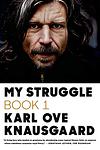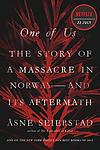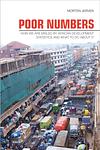The Greatest Lebanese, Norwegian "Nonfiction" Books Since 1980
Click to learn how this list is calculated.
This list represents a comprehensive and trusted collection of the greatest books. Developed through a specialized algorithm, it brings together 300 'best of' book lists to form a definitive guide to the world's most acclaimed books. For those interested in how these books are chosen, additional details can be found on the rankings page.
Genres
Countries
Date Range
Reading Statistics
Click the button below to see how many of these books you've read!
Download
If you're interested in downloading this list as a CSV file for use in a spreadsheet application, you can easily do so by clicking the button below. Please note that to ensure a manageable file size and faster download, the CSV will include details for only the first 500 books.
Download-
1. The Bookseller of Kabul by Asne Seierstad
This book provides an intimate and eye-opening look into the everyday life of an Afghan family. The narrative follows a bookseller in Kabul, who despite the oppressive Taliban regime, courageously continues his trade. The story delves into his family dynamics, the struggles of his two wives, his children's lives, and the societal norms and customs they navigate. It paints a vivid picture of life in Afghanistan, exploring the themes of love, courage, resilience, and the power of literature.
-
2. My Struggle by Karl Ove Knausgaard
The book in question is an autobiographical novel that delves deeply into the minutiae of the author's life, exploring his personal relationships, emotions, and the everyday experiences that shape his identity. It is a candid and introspective narrative that spans across various stages of his life, from childhood to adulthood, and examines themes such as family, death, love, and ambition. The author's unflinching honesty and detailed prose invite readers to reflect on the complexities of their own lives, as he scrutinizes the ordinary moments that, collectively, define who we are.
-
3. Beirut Fragments by Jean Said Makdisi
"Beirut Fragments" is a poignant memoir that delves into the personal experiences of a woman living through the Lebanese Civil War. The narrative captures the daily struggles, fears, and the resilience of civilians caught in the crossfire of a fragmented city. Through her eyes, readers witness the transformation of Beirut from a vibrant cultural hub to a landscape scarred by violence and destruction. The author's reflections offer a deeply human perspective on the impact of war, the loss of loved ones, and the enduring hope for peace amidst chaos. Her story is a testament to the strength of the human spirit in the face of relentless adversity.
-
4. One Of Us: The Story Of Anders Breivik And The Massacre In Norway by Asne Seierstad
One of Us by Asne Seierstad is a detailed account of the 2011 terrorist attack in Oslo, Norway, carried out by Anders Breivik. The book explores Breivik's background, motives, and planning leading up to the attack, as well as the aftermath and impact on the survivors and families of the victims. Seierstad's thorough research and interviews with those affected provide a comprehensive and emotional portrayal of the tragedy, shedding light on the complexities of extremism and the devastating consequences of hate.
-
5. Ecology, Community And Lifestyle by Arne Naess
"Ecology, Community and Lifestyle" is a philosophical text that outlines the principles of deep ecology, a movement emphasizing the intrinsic value of all living beings and the need for radical shifts in modern human societies to sustain ecological balance. The book delves into the interdependence between human life and the environment, advocating for a comprehensive transformation in our lifestyles and political systems to foster a sustainable relationship with the earth. It combines insights from ecology, philosophy, and sociology to propose a more harmonious way of living that respects the limits of the planet's resources and promotes a thriving, diverse biosphere.
-
6. The Vanished Imam by Fouad Ajami
"The Vanished Imam" delves into the life and legacy of Musa al Sadr, a charismatic Lebanese Shia cleric who mysteriously disappeared in 1978. The book explores his influential role in the transformation of the Shia community in Lebanon from a marginalized group to a significant political force. Through a detailed narrative, the author examines al Sadr's efforts to empower the Shia, his establishment of the Amal Movement, and his disappearance during a trip to Libya, which remains a contentious issue in the Middle East. The book also provides a broader analysis of the social and political dynamics of Lebanon and the region, highlighting the complexities of identity and power.
-
7. A Death in the Family by Karl Ove Knausgaard
"A Death in the Family" is a deeply personal and introspective narrative that delves into the complexities of familial relationships, childhood, death, and memory. The protagonist, a writer, is forced to confront his past and his relationship with his alcoholic father after his death. The novel explores the impact of this death on the protagonist's life and his struggle to come to terms with his complicated feelings of love, resentment, and guilt. The narrative is a profound exploration of the human condition, the intricacies of family dynamics, and the lasting impact of grief and loss.
-
8. The Black Swan by Nassim Nicholas Taleb
The book delves into the profound impact of highly improbable and unpredictable events that have massive consequences, which the author terms as "Black Swans." It challenges our understanding of the world by critiquing how we rely on simplistic models to predict the future, often overlooking the possibility of such rare events that can reshape our reality. Through a blend of philosophical insights and practical wisdom, the narrative encourages readers to embrace uncertainty and unpredictability, arguing that our ability to deal with Black Swans is more important than trying to predict them. The author's exploration spans across various domains, including finance, science, and history, illustrating how Black Swans have shaped the course of human events and urging a reevaluation of how we think about risk and reward in an inherently unpredictable world.
-
9. Poor Numbers by Morten Jerven
This book critically examines the reliability of economic statistics in Sub-Saharan Africa, revealing a significant gap between the reported data and the actual economic realities on the ground. The author delves into the systemic issues plaguing statistical offices across the continent, including underfunding, political interference, and a lack of technical capacity, which collectively contribute to the production of inaccurate economic data. By analyzing the processes and methodologies used to gather and report these statistics, the book sheds light on the profound implications these "poor numbers" have for policy-making, economic development, and international perceptions of African economies. Through this exploration, it calls for a reevaluation of how economic data in these countries is collected and used, advocating for reforms that could lead to more accurate and meaningful measurements of economic progress.
Reading Statistics
Click the button below to see how many of these books you've read!
Download
If you're interested in downloading this list as a CSV file for use in a spreadsheet application, you can easily do so by clicking the button below. Please note that to ensure a manageable file size and faster download, the CSV will include details for only the first 500 books.
Download






